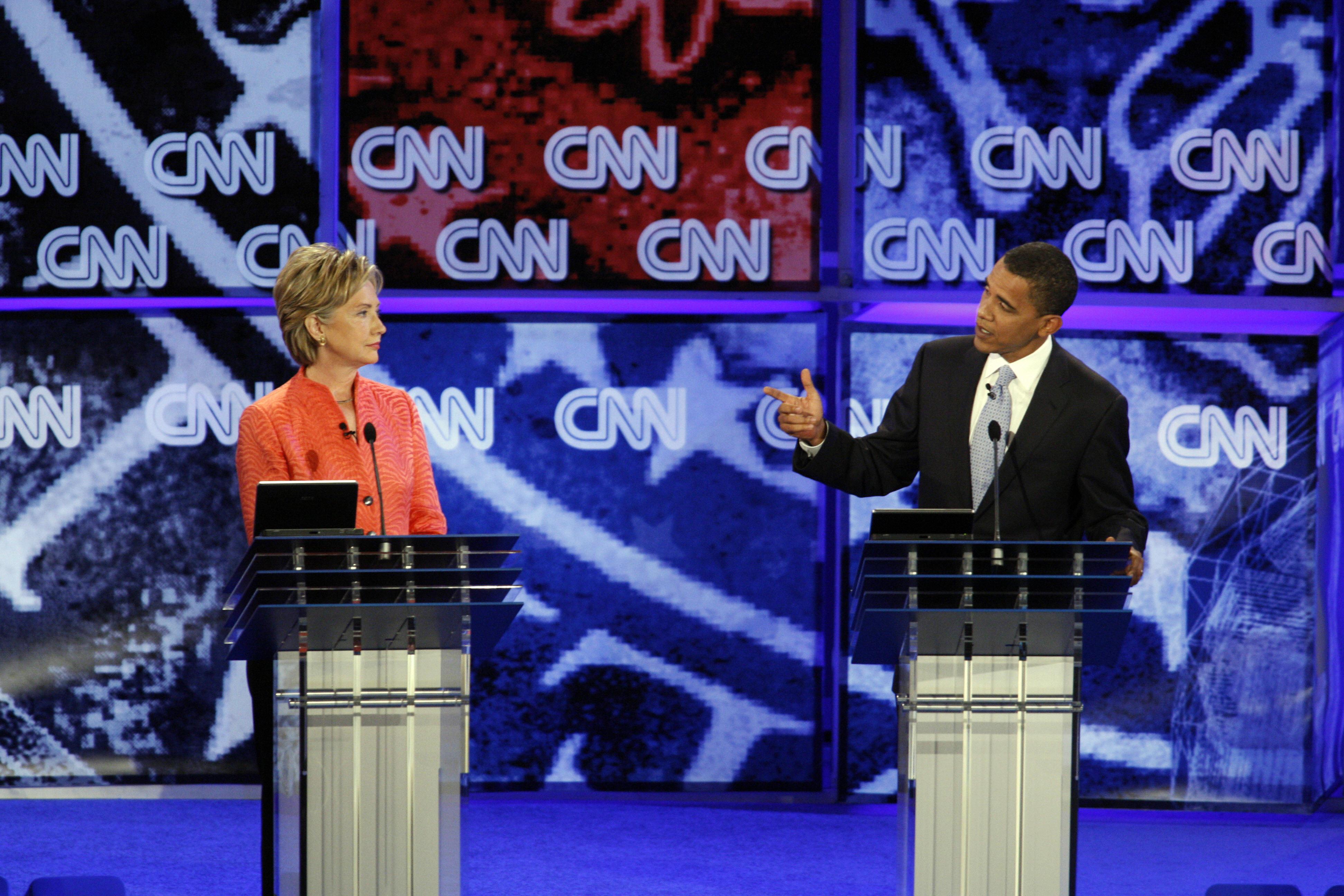In this season of off-the-cuff statements that turn out to have wide-ranging diplomatic consequences, it’s worth thinking back to the ur-substantive gaffe of the Obama administration’s foreign policy.
One the defining moments of the 2008 election from an international affairs point of view came during the July 24, 2007 CNN/YouTube presidential primary debate, when an audience member asked Sen. Barack Obama, “would you be willing to meet separately, without precondition, during the first year of your administration, in Washington or anywhere else, with the leaders of Iran, Syria, Venezuela, Cuba and North Korea, in order to bridge the gap that divides our countries?” To everyone’s shock, Obama said he would, and that “that the notion that somehow not talking to countries is punishment to them–which has been the guiding diplomatic principle of this administration–is ridiculous.”
The response was slammed as “irresponsible and frankly naive” by Hillary Clinton campaign. Republicans were even harsher. But rather than backtrack, Obama doubled down on the idea, saying during a later one-on-one debate with Hillary Clinton that “it’s important for the United States not just to talk to its friends, but also to talk to its enemies. In fact, that’s where diplomacy makes the biggest difference.” My now-colleague Matthew Yglesias argued in the Atlantic in 2008 that it was this early “gaffe” that helped Obama discover his distinctive voice on foreign policy.
The thing is, it never really happened, either in Obama’s first year or any point afterward. Obama did “greet” Hugo Chavez at a summit in 2009, and received some reading material, but there was never an official meeting with the late Venezuelan leader or his successor, Nicolas Maduro. There’s been some low-level thawing of diplomatic relations with Cuba, but nothing close to a meeting between Obama and either Castro brother. Same story with both Kims. There was movement to normalize relations with Syria during the first term, but generally with then Sen. John Kerry acting as intermediary.
Of course, at the time, the question was really about Iran, and its bellicose president, Mahmoud Ahmadinejad. Obama has recorded yearly Nowruz messages aimed at the Iranian public, but never a sit-down with Ahmadinejad or anything close to it.
Now, it appears, with a new president in Tehran, the U.S.-Iranian presidential meeting that Obama said he was open to in 2007 might actually happen:
White House spokesman Jay Carney has deflected questions all week about whether the two leaders would meet during the U.N. gathering. On Thursday, he acknowledged a change in tone between Iran and the West since Rouhani took office and said a meeting was possible, though one was not scheduled. “It’s possible, but it has always been possible,” Carney said. “The extended hand has been there from the moment the president was sworn in.”
The meeting in question would probably be more along the lines of the brief Chavez encounter. But with Rouhani making all the right noises in advance of the U.N. summit this week, a more formalized summit seems more plausible than it ever did in the Ahmadinejad days.
Obama’s logic in 2007, when he pointed out that “Ronald Reagan and Democratic presidents like JFK constantly spoke to Soviet Union at a time when Ronald Reagan called them an evil empire… because they understood that we may not trust them and they may pose an extraordinary danger to this country, but we had the obligation to find areas where we can potentially move forward,” makes as much sense today as it did at the time. Hopefully with a leader in Iran who’s more conciliatory in tone, and will perhaps turn out to be more substantively cooperative than his predecessor, the president can finally follow through on this campaign promise.
